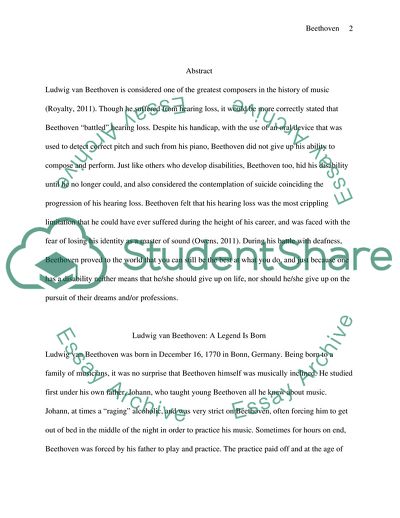Beethoven's Life and His Battle with Deafness Coursework Example | Topics and Well Written Essays - 1500 words - 1. https://studentshare.org/biographies/1750172-famous-person-with-disabilities-beethoven
Beethoven'S Life and His Battle With Deafness Coursework Example | Topics and Well Written Essays - 1500 Words - 1. https://studentshare.org/biographies/1750172-famous-person-with-disabilities-beethoven.


